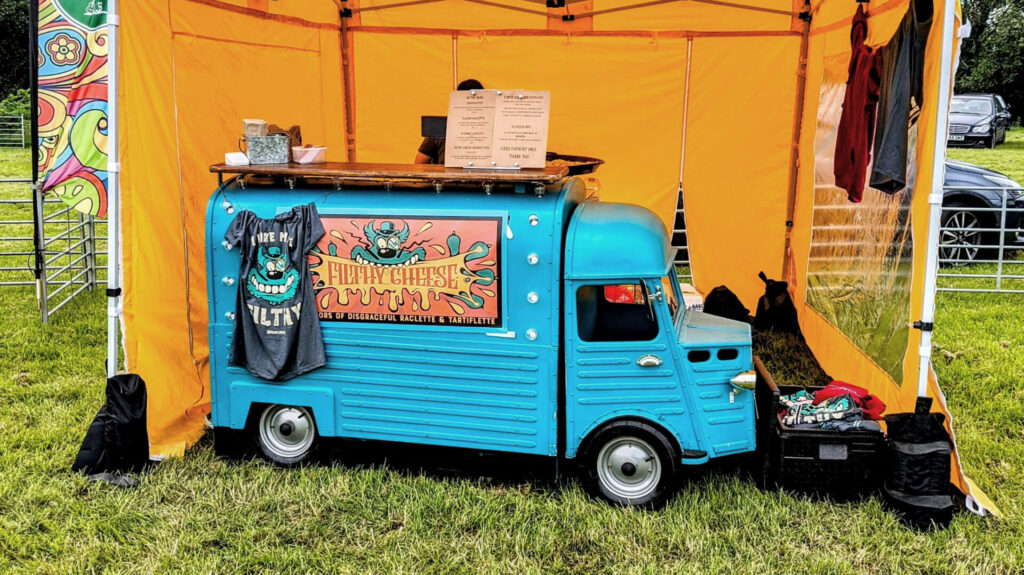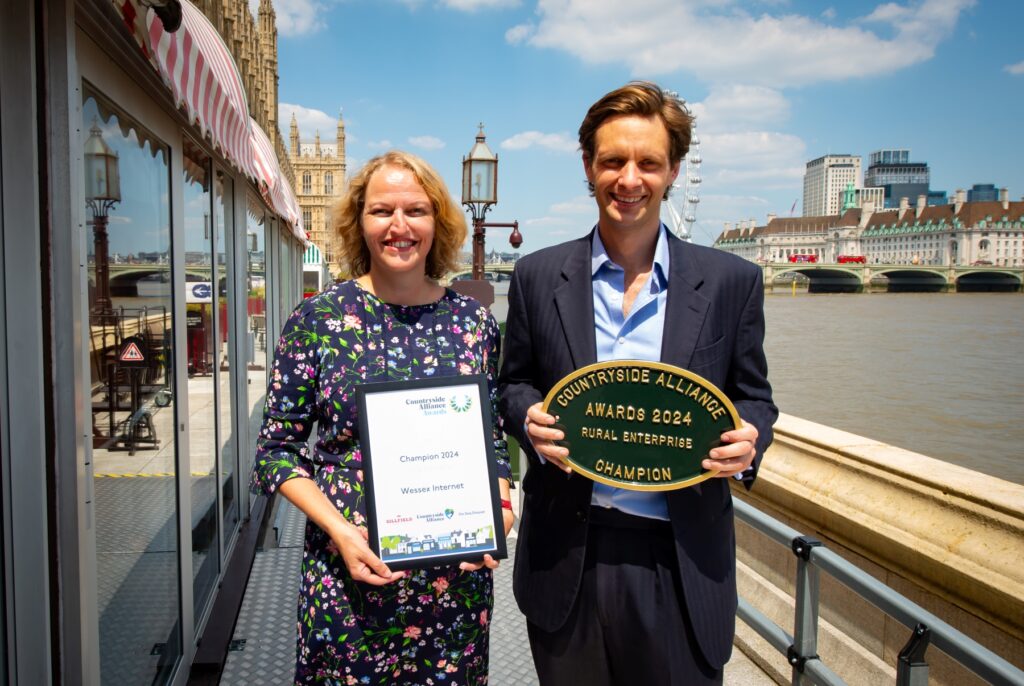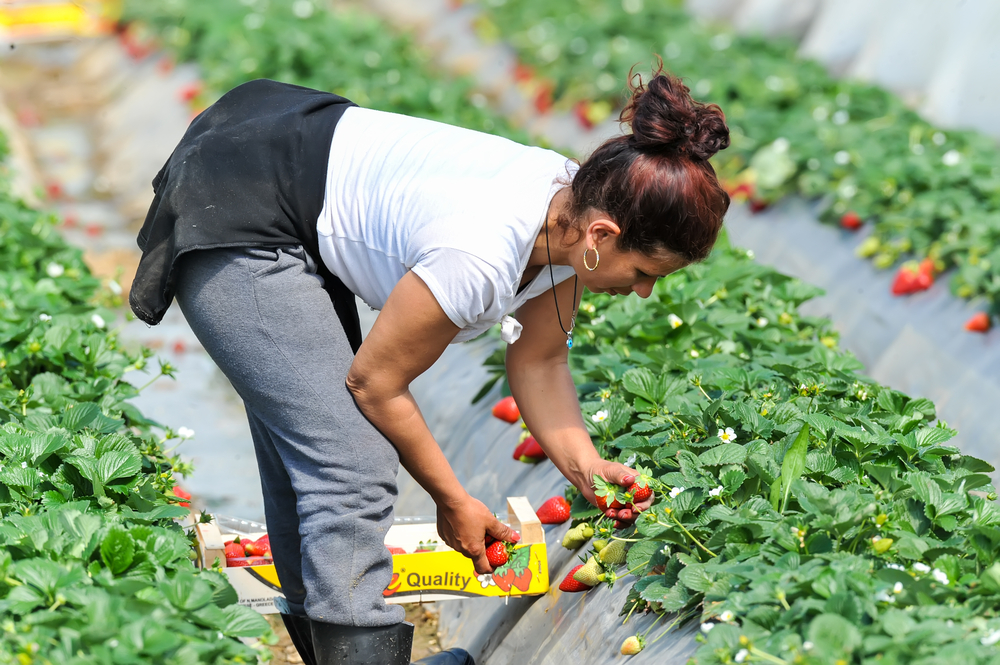Feltham’s Farm Organic Cheeses has clinched the title for Best Organic Cheese at the Artisan Cheese Awards 2024 with its renowned La Fresca Margarita, also securing a Gold in the Fresh Class. The competition saw an impressive turnout with over 600 entries from across the UK and Ireland, setting the stage for a fiercely contested event.
La Fresca Margarita stood out among stiff competition, surpassing well-known hard cheeses such as Caws Teifi Heritage and Holden Cheese’s Hafod Cheddar in the Organic category. La Fresca Margarita is crafted as a soft Organic Queso Fresco, and is made from the finest single-source organic milk provided by neighbouring Somerset farm Godminster’s herd. Owner and cheesemaker Marcus Fergusson says: ‘People are really coming back to these young, fresh, un-aged cheeses, and we are delighted that judges are also recognising how simple cheese is often the hardest to make really well – this win is tribute to Michael Leech and the cheesemaking team.’
Feltham’s Farm is sweeping the (cheese) board
Meet Pepé, the baby truckle

Image:
Tom Crockford
Carolyn Hopkins learned her trade as a cheesemonger with Charlie Turnbull at the still-missed Turnbulls Delicatessen and Cafe in Shaftesbury. Now she takes her travelling cheeseshop the Truckle Truck – a bright turquoise converted Citroen van – to Shaftesbury and Wincanton, and to food fairs, festivals and events, where she sells outstanding local and regional cheeses, as well as chutneys and savoury biscuits.
From this month, you can also meet the Truckle Truck’s trailer-drawn baby, Pepé Le Pew (named after Disney’s famous skunk). He’s clearly a rather stroppy offspring with the official name Filthy Cheese, and if you think you recognise the style of the baby truckle’s logo, you are right. Its designer also created the award-winning labels for Marcus Fergusson’s Feltham’s Farm cheeses.
Carolyn will be taking Pepé to events around the area, serving two of the great Alpine cheese dishes – raclette and tartiflette. Swiss in origin, raclette is both an ancient cheese from the canton of Valais, and a dish created by heating cheese and scraping off the melted part, typically serving it with boiled potatoes or bread. Carolyn will be using raclette with wild garlic and and Ogleshield, a similar cheese made by Jamie Montgomery at North Cadbury.
Tartiflette comes from Savoy in the French Alps and from the Aosta valley, and is made with potatoes, reblochon cheese, lardons and onions, often with a splash of white wine. Dating back to the 14th century, reblochon has an interesting history, created by farmers to avoid paying duty to their landlords. They only declared part of their first milking, and used the undeclared remaining – and much richer – milk to make the small cheeses.
Baby Pepe, a miniature Citroen H van, was made specially for Carolyn by London-based Yannick Read, who is known for his miniature Citroen “Prosecco bars”.
Wessex Internet Wins Top ‘Oscar’ at Countryside Alliance Awards.
Wessex Internet has been named the best Rural Enterprise in the UK at the prestigious Countryside Alliance Awards, held at the House of Lords in London on Tuesday, 25 June. The awards, now in their 17th year and often referred to as ‘the rural Oscars,’ recognise businesses that go the extra mile within their communities and support the rural economy.

Nominated anonymously by its customers, Wessex Internet topped a public vote in the southwest region and was selected as the overall national winner from thousands of nominees across the UK by a panel of judges.
Hector Gibson Fleming, CEO at Wessex Internet, expressed his joy at the recognition: “I’m absolutely over the moon that we have been recognised as Rural Enterprise champion at the 2024 Countryside Alliance Awards. This is a huge testament to the history of the business, the hard work of all of our people, and because we have stayed true to our values since forming as a small company to help our neighbours to now serving rural communities across Dorset, Somerset, Wiltshire, and Hampshire.
“It was particularly heartening for the judges to recognise not only the impact we make directly on the rural economy as a growing company and local employer, but more widely that the ultrafast broadband we provide enables other rural businesses to thrive and allows people living in the countryside to enjoy a higher quality of life. Whether by enabling remote and hybrid working for professionals, keeping businesses connected to their customers, helping families to keep in touch with loved ones, or simply enabling people to enjoy the range of entertainment and essential services available online, we are determined to bridge the digital divide.”
During the ceremony, the organisers highlighted Wessex Internet’s dedication: “Wessex Internet has developed out of the absolute need to be part of the digital world. They have fought tooth and nail to be an internet provider that meets the needs of rural communities where the larger providers have failed.”
Sarah Lee, Director of Policy at the Countryside Alliance, added: “We are proud to be honoring these exceptional rural businesses, and the people behind them who are passionate about providing quality goods, services, and employment to rural communities and beyond. Running a business in a rural community isn’t easy, and it’s so important to celebrate the valued role these rural enterprises have in their communities.”
North Dorset businesses were well represented at the House of Lords, with Andrew Stevenson-Hamilton, the proprietor of the Child Okeford Village Shop, also in attendance to receive the Highly Commended National Award for Best Village Hall & Post Office, after topping the southwest region. The shop, located just three miles from Wessex Internet’s headquarters in Shroton, exemplifies the rural circular economy by stocking products from local suppliers, employing local people, and providing an essential and popular service, including to Wessex Internet’s staff who have been regular customers while installing ultrafast broadband in the village.
Wessex Internet Wins Top ‘Oscar’ at Countryside Alliance Awards.
Nabbing the farming vote
Andrew Livingston found some unexpected optimism in May, but the General Election introduces new complexities and decisions for farmers

May was a slightly odd month – I actually felt like things were starting to turn around. Was it just me, or could you see the light at the end of the tunnel? News broke that inflation rates dropped to their lowest point in three years and then Rishi Sunak, at his UK Farm to Fork summit, declared a raft of announcements to bolster the farming sector, including funding for research on environmentally resilient farming, reviews into the pig, poultry and dairy sectors, and a five-year extension to the seasonal workers visa scheme.
‘Wow’, I thought. ‘The Tories are on the right side of the news for once.’
And then they announced the General Election. I think farmers will be glad for any handouts at the moment – even if they have to sell their souls, let alone their political vote.
Potato skills camp
In Dorset, seasonal workers aren’t such a big deal, but for the larger horticultural counties such as Yorkshire, Norfolk, Kent and Herefordshire, there is a huge reliance on workers from abroad flying in to help with the harvest of vegetables, fruits and flowers. So the news of the extension of the seasonal workers scheme will be a big shot in the arm for farm managers over the coming years.
With the announcement of the extension, DEFRA also pledged to ‘turbo-charge’ investment into automation, with £50 million of funding for new technology such as improving robotic pickers and automating pack houses. The hope is that in five years we can replace the need for foreign workers with automation and technology.
Ideally, the British workers would be out there getting their hands dirty, of course. But frankly, as a nation, we aren’t skilled or resilient enough to do the hard work – a point I have laboured many times before (excuse the pun).
In the same week, Mel Stride, Secretary of State for Work and Pensions, announced a rollout to encourage the UK’s unemployed population to join ‘skilled boot camps’ to fill the gap left by foreign workers. It’s a grand idea … that unfortunately won’t ever amount to anything.
Former Tory and now Reform UK MP, Lee Anderson, took it one step further and stated in an interview with GB News: ‘Let’s be clear, bone-idle dole scroungers should be made to go to work, and if they do not go to work, they should have their benefits stopped.
‘Let’s stop being ridiculous. We need fruit picking in the fields, we need vegetables picking. We need stuff packing in factories. You don’t need a skills boot camp to teach people how to pick potatoes out of the field.’
I like his commitment to the cause, however fascist it may seem. But to make out that picking potatoes out of a field isn’t a skilled job is laughable. I would love to see Mr Anderson go out picking for a day – could he keep up to target yield to make his day’s pay worth it?
I’m unsure how I am going to vote in the upcoming election on 4th July. If I’m honest I don’t think any of the options are entirely inspiring, but I know for a fact that my vote will sway to whoever backs British farming the best.
The tunnel is starting to look a little brighter.
I may be naive. I may be stupid.
And with the current political and economic landscape I may be proved completely wrong in just a few weeks.
Celebrating Pride with pride
Finding your space: Dorset Mind volunteer Annabel Goddard looks at how to participate in Pride when you’re still questioning your identity

The 7th of July 2024 sees the Sherborne Pride coming out for the very first time, celebrating equality and diversity for the LGBTQIA+ community. Pride festivals occur up and down the country, with parades and fun for the whole family. We love celebrating the positive parts of sexuality and gender, but what do you do when you’re not feeling like celebrating yet?
Feeling pressure
If you’re questioning your sexuality or gender, it can be disheartening to not know if you can join in with Pride celebrations comfortably. It can feel like something additional to navigate, on top of questioning your identity, and can even pressure you to label yourself prematurely. It’s important to remember that your identity is yours, and nobody else’s: you don’t need a label. You don’t have to put yourself into a box to become accepted, and even if you’re not sure, everyone is welcome to join Pride celebrations regardless of their gender identity or sexuality!
If you’re really not ready to come out or accept yourself, you should feel no pressure to. Pride will be there waiting for you another time.
Feeling left out
You may already be secure in your identity, but you might not have a support network you can talk to who will understand. LGBTQIA+ issues can include depression and low self-esteem. Make sure, if you can, to find a reliable, trustworthy family member or friend who you can talk to about these issues. For more specific LGBTQIA+ support, there is information on the Dorset Mind website which can help you to build more specific support, such as the MindOut LGBTQIA+ Wellbeing Group. These issues can often intersect with cultural and religious problems which can make it tougher to be you. If you find yourself struggling with your mental health, it’s important that you take care of yourself. If you’re able to, speak to your GP who will provide you with directions to support.
How to support loved ones
It can be tricky to navigate LGBTQIA+ issues as someone who doesn’t identify that way. While nobody expects you to become an expert overnight, it is important to remember that gender and sexuality are two extremely different and diverse concepts. To make a person questioning their identity feel accepted, you just need to listen to them and do your best to understand. There is detailed information about LGBTQIA+ identities on dorsetmind.uk, which could help you to begin. At the core of it all, however, we’re all still human, and everyone, especially those struggling with their identity, deserves love and kindness. A wonderful way to show support as an ally would be, if you can, to go to Pride with that person and join in the celebration. The community is overwhelmingly accepting and kind, and open to everyone, as long as they’re respectful.
Support for you:
Visit dorsetmind.uk for local mental health support and for advice on ways to keep mentally healthy
MindOut LGBTQIA+ Wellbeing Group 6pm to 8pm every Wednesday online https://bit.ly/DM_MindOut
Call Samaritans for free 24/7 emotional support on
116 123
Call Dorset’s mental health helpline Connection for support on NHS
0800 652 0190
Switchboard LGBT+ Helpline call 0300 330 0630
10am to 10pm daily
Call 999 if someone is in immediate danger or harm
Being moved to Universal Credit
A local expert from Citizen’s Advice provides timely tips on consumer issues.

Q: ‘I have been claiming housing benefit for several years but I recently received a letter from the government telling me that I have to make a claim for Universal Credit. What should I do?’
A: The following means-tested benefits are ending and are being replaced by a single means-tested benefit called Universal Credit:
- Tax credits: Working Tax Credit and Child Tax Credit
- Housing Benefit
- Income Support
- Income-based Jobseeker’s Allowance (JSA)
- Income-related Employment and Support Allowance (ESA)
Benefits such as PIP and Attendance Allowance are not affected by this change.
The process is known as ‘managed migration’ and the letter you have received is called a ‘migration notice’. You’re not alone, most households claiming tax credits and no other means-tested benefit have already been contacted.
The government says that, over the coming year, it plans to issue migration notices as follows:
- From April: Income Support claims and Tax Credits with Housing Benefit claims
- From June: Housing Benefit only claims
- From July: income-based Employment and Support Allowance with Child Tax Credit claims attached
- From September: Income-based Jobseeker’s Allowance claims
The government has also said that, from August onwards, it plans to contact people who are claiming tax credits but who are over state pension age to ask them to apply for either UC or Pension Credit (depending on the make-up of their household).
To continue receiving financial support you must claim Universal Credit by the deadline date given in your letter.
This is three months from the date the letter was sent out. You should make a claim online via the government website – you need to create an account to make a claim. You must complete your claim within 28 days of creating your account or you’ll have to start again.
If you cannot claim Universal Credit by the deadline date, you should contact the Universal Credit Migration Notice helpline on 0800 169 0328 as soon as possible. You may be able to get more time to make a claim if you have a good reason, but you must request this before the deadline date on your letter. There is lots more information about this process on the government website www.gov.uk.
If you need help to make a UC claim, contact the Citizens Advice Help to Claim Service either online here or by phone on 0800 144 8 444.
sponsored by Wessex Internet
We make the best cheese
It’s not jingoism or an idle boast – these days British cheese-makers are doing brilliant and exciting things (and we still have the best Cheddar)

Image: John Grindle
The French used to make the finest cheeses in the world, but they have largely stood still in recent years. The Swiss consistently hit top marks with their ancient Gruyere, the Spanish manchego at its best is world-class, the Italians make sumptuous, runny, smelly cheeses and arguably the world’s finest aged hard cheese (Parmesan). But for a combination of tradition, innovation and outstanding quality, Britain is now in the vanguard of cheese.
Many years ago, when my daughter had recently moved to California, we all went to Napa Valley and dropped in at the Dean and DeLuca delicatessen. The first thing that caught our eyes was a lavish display, in the glass-fronted cheese section, of farmhouse Cheddars – centre stage, Montgomery’s and Keen’s. We laughed and explained to the baffled cheesemonger that we lived about three miles from one and two from the other, in the middle of what was the “Cheddar triangle” which also included Westcombe. Twenty years on, it’s a magic circle that has extended to include many new and brilliant cheese-makers around our region.
Within about an hour’s drive of Sturminster Newton – itself once home to a important cheese factory – you can find the famous unpasteurised traditional Farmhouse Cheddars made by James Montgomery at North Cadbury, the Keen family near Wincanton and Tom Calver at Westcombe, and the ancient Dorset Blue Vinny revived near Lydlinch.
But there are also new cheesemakers producing exciting and successful cheeses.
These include Marcus Fergusson’s award-winning, washed-rind Renegade Monk and other cheeses made at Feltham’s Farm near Wincanton, Peter Morgan of The Book & Bucket Co at Cranborne, producing exceptional cheeses, including the Great Taste-starred Shakespeare and Hardy’s, and James McCall, who makes the delicious washed-rind Francis and other cheeses at Child Okeford. Further into Somerset, you find Jonathan Corpe of Somerset Water Buffalo with his exceptional mozzarella, made on the farm at Chilthorne Domer near Yeovil.
Roger Longman at Bagborough, close to the Bath and West showground near Shepton Mallet, produces a string of top cheeses – from the milk of cows, sheep and goats – under the White Lake Cheese brand he launched in 2004 at his family farm. He recently won the Best English Cheese prize at the British Cheese Awards for his gorgeous, ash-covered, pyramidal Tor goat’s cheese.
Something old … something blue
Mike Davies revived the almost-extinct Dorset Blue Vinny more than 35 years ago at Woodbridge Farm near Stock Gaylard. The ancient cheese is mentioned in some of Thomas Hardy’s books and there are some rather disreputable stories attached – it is said that to achieve the distinctive blueing, some makers would drag mouldy horse harnesses through the milk, or store the maturing cheeses next to the farmer’s dirty boots to encourage the mould to grow! More seriously, it was usually made by the farmers’ wife, using milk left over after the cream had been skimmed off for butter.
After the Second World War, Blue Vinny (and no, it doesn’t have an e) became increasingly difficult to source and opportunists even sold other blue cheeses under the Dorset name. In the early 1980s, Michael Davies resurrected the cheese, using a 300 year old recipe. He started in the farmhouse garage and used the kitchen pantry as a maturing room, apparently turning the walls, floor – and even the cornflakes – blue with mould. He was soon given an ultimatum by his wife: move out to the old cow byre or else! In 1998, he was the first food producer to be awarded PGI (Protected Geographical Indication) status, and the Davies family are the only producers of Dorset Blue Vinny. Today, Mike, his daughter Emily and the team continue to make the cheese in the same old cow byre.
From early on, Emily wanted to work on the farm, but she had to find a way to create an income for herself. Returning one cold, wet, winter’s day from Frome Farmers Market with a lot of unsold Blue Vinny and feeling understandably miserable, she went to see her god-mother, a professional cook. Together they came up with an idea to use the unwrapped, partially cut and therefore unsaleable cheese. The result of their experiments was the first Dorset Blue Soup – pear and Blue Vinny. Trialled at subsequent farmers markets, it proved a hit with customers. Other flavours were developed and Dorset Blue Soup became an additional Woodbridge Farm product. Interestingly, in addition to the farm’s own self-service shop and local delis and farm shops, it is stocked in the Waitrose store at Gillingham.
But Dorset Blue Vinny is still at the heart of the Davies family farm – a cheese with a long heritage, that can stand comparison with other traditional blue cheeses (and that some of us think is better!).
Ellie’s officially Somerset’s Young Person of the Year!

Ellie Bealing, a Year 11 student at King Arthur’s School in Wincanton, has been named ‘Young Person of the Year’ at the Pride of Somerset Youth Awards. Ellie faced tough competition from other outstanding young individuals across the county, including athletes, volunteers, artists and leaders. The awards celebrated the significant impact these young people have made through their dedication, leadership, and inspiring achievements.
Sponsored by Bridgwater & Taunton College, the Young Person of the Year category awards a young person who demonstrates exceptional dedication and achievement, serves as an inspiration to others, and exemplifies the best qualities of Somerset’s youth.
Philippa Huggins, a teacher at King Arthur’s, nominated Ellie for the award. ‘Ellie is quite simply an outstanding young woman. She is a very proactive member of King Arthur’s School, she’s Head of School and sits on the school council, representing the student body both formally and informally. She represents the school and Somerset as an elected member of the Youth Parliament. She’s a member of the British Youth Council and has campaigned to highlight the disparity of experience between young people in Somerset vs other, less rural areas linked to available opportunities and transport links.’
sponsored by Wessex Internet





